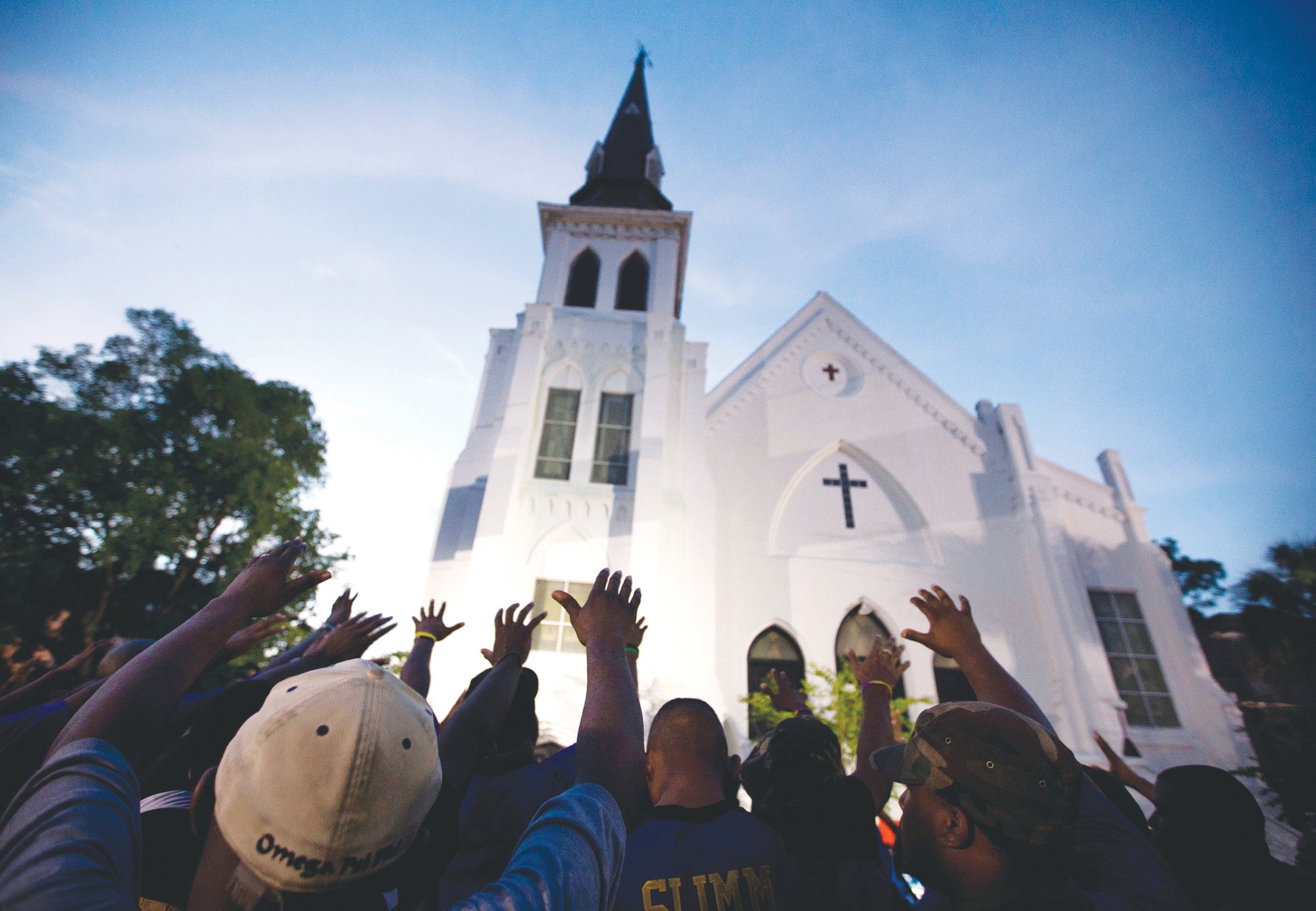Businesses pressure lawmakers to pass S.C. hate crime law
COLUMBIA (AP) - Nearly 100 businesses in South Carolina announced Monday they want the state to join 47 other states across the U.S. and pass a hate crime law.
The proposal to allow harsher penalties for killings, assaults, stalking, vandalism and other crimes motivated by hatred for someone's race, sexual orientation, religious beliefs or disability has not come up for a hearing six weeks into the General Assembly's session.
So the South Carolina Chamber of Commerce got leaders of some of the state's largest employers - Walmart, IBM, UPS, Duke Energy, pharmaceutical maker Nephron - to talk to reporters on a virtual call.
And when businesses speak, South Carolina lawmakers often listen. Pressure from industry leaders finally convinced lawmakers to raise the gas tax in 2017 as Michelin suggested it could no longer expand its tire plans in the state because the roads were so bad, and other major factories joined in.
"It took the business community to finally get that bill passed. It was a 10-year effort," said state Chamber of Commerce interim CEO Swati Patel, who as former Gov. Nikki Haley's chief of staff felt a lot of that pressure.
In 2000, a state that attracted the first BMW plant in America was finding foreign companies embarrassed to be linked to a state that flew the Confederate flag on the Capitol dome. Lawmakers relented to years of pressure and moved the rebel banner to the Statehouse lawn for the next 15 years.
The hate crimes bill is a similar effort. South Carolina, Arkansas and Wyoming are the only three states without enhanced punishments, and businesses want to know why that is not important to South Carolina leaders.
"We have to demonstrate to the world that hate will not be tolerated here," said Tim Arnold, chairman of the state Chamber's Board of Directors and president and CEO of Colonial Life & Accident Insurance Company.
Businesses were also vital in getting the most recent hate crimes bill passed in Georgia last June after the death of Ahmaud Arbery, a 25-year-old Black man pursued and fatally shot while running near Brunswick, Georgia.
Arkansas Republican governor and other political and business leaders have made a public push to pass a hate crimes law there, but opposition gathered before the legislative session started.
South Carolina House Speaker Jay Lucas made the hate crimes bill a key part of a deep dive he asked representatives to take into criminal justice issues after the death of Black man George Floyd by a police officer in Minnesota who pressed his knee into Floyd's neck for several minutes as Floyd pleaded for air.
The Hartsville Republican revived an effort that never really gained traction, even after the 2015 massacre of nine Black members at Emanuel AME Church in Charleston where a white man targeted a Bible study at the 200-year-old African-American church.
The bill backed by Lucas and with 29 other bipartisan sponsors would add up to five years in prison for someone convicted of a violent crime fueled by hate, three years for stalking or harassment and an extra year behind bars for vandalism. A hate crime would not be a violation by itself.
The opposition to the bill has been quiet so far. A Republican lawmaker suggested at public hearings that maybe police officers could be added to the list. Conservatives have said before that there is no need to add extra penalties on what are already illegal acts based on what while perhaps vile could be considered free speech.
The bill is waiting on a hearing in a House committee. Meanwhile, the state Chamber of Commerce has created a website and plans a social media push along with the businesses who are backing the proposal.
IBM Senior State Executive for South Carolina Kim Overbay is a South Carolina native and said it saddens her that June will mark six years since the dark day of the Emanuel church shooting in which the federal government had to step in and charge the shooter with a hate crime.
"When our employees, clients and their families are safe and can live without fear, business and communities thrive," Overbay said. "There is no room for hate in our society."
___
Follow Jeffrey Collins on Twitter at https://twitter.com/JSCollinsAP.
More Articles to Read

